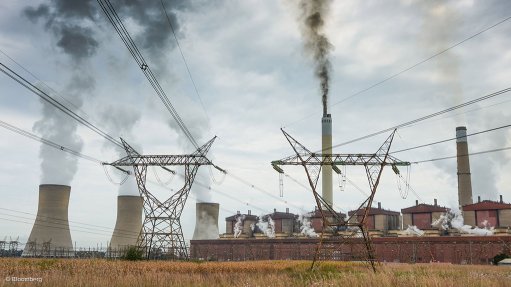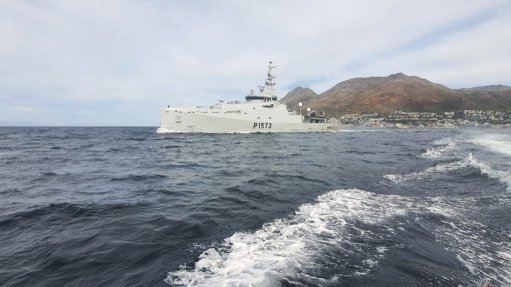Steel Import tariffs destroying local manufacturing efforts
This article has been supplied.
Tal-Tec’s Greg Talbot, MD of the Brits-based local manufacturer of modular farming solutions for managing livestock, describes how South Africa’s steel import tariffs are impacting the competitiveness of his business.
“For manufacturers of steel products in South Africa, 2021 was dismal, triggered by unprecedented shipping delays out of China,” says Greg Talbot of Tal-Tec.
“Most of our products depend on steel tubing, which is of course, manufactured from coils of flat steel sheet,” he continues, adding that all of the tubing used by Tal-Tec is locally produced and bought through local wholesalers.
Steel tubing is manufactured in South Africa by a number of local manufacturers, including Barnes Tubing, Augusta and MACSTEEL, for example, which buy their coil from ArcelorMittal. “But the global shipping crisis created shortages of coil to manufacture tubing, causing the global market to skyrocket. The organisations input costs went up by 110% to over US$1500/t at one-point last year. We are still having to pay prices of over $1 200/t, which is about R22 000/t.
“A number of years ago, ArcelorMittal negotiated to have 18% import tariffs and duties put onto imported steel, including coil, to protect its local business. Yet it is still able to charge the global market price for locally produced steel – prices that shouldn’t be affected by global shipping issues. So South African manufacturers are getting the raw end of the deal, in spite of the fact that local manufacturing is a national priority,” Talbot argues.
Prior to these cost escalations, he says the local cost to produce a ton of steel tubing – using coil from ArcelorMittal – was running near $850/t. “Since they were bought from ISKOR, local ArcelorMittal steel plants have not been modernised in any significant way. Newer companies, specifically in the Eastern Block of Europe, can produce tubing far more efficiently at costs of around $550/t. So our input costs have long been more than competitors from overseas,” says Talbot.
Another input cost concern for Tal-Tec is nuts and bolts, says Talbot: “There used to be several good local manufacturers, but due to competitive pressure from China, these have nearly all closed down, and the ones that haven’t are dependent on ArcelorMittal steel and just cannot compete with the Chinese. Again, anyone wishing to import nuts and bolts to reduce their costs is subject to the additional import tariffs,” he notes
“Where this really affects the organisation is when we export into Africa. We then have to compete directly with Chinese finished product that doesn’t have these protectionist duties. Going forward, this is likely to seriously impact the export market, because China is really pushing into Africa. By paying up to 25% duties, mostly to protect South Africa’s raw steel manufacturer, our products becomes 20% more expensive than imported finished gates sent to Zambia from China,” he points out.
Citing local manufacturers of white goods such as washing machines with steel cages, he says that locally manufactured machines are again at least 20% more expensive than imported ones. But no tariffs are applied to machines directly imported from ‘favoured nations’ overseas, which directly disadvantages local manufacturing. “To help us local producers, tariffs should be applied to finished goods and not on raw steel imports and nuts and bolts,” he suggests.
“We desperately need a more modern, efficient and cost-competitive steel industry in this country if we are to have any hope of competing in the global market,” argues Greg Talbot. “But we also need tariff policies that favour local goods manufacturers, from small to large, instead of only protecting the overseas-owned interests of our local raw steel producer,” he concludes.
Article Enquiry
Email Article
Save Article
Feedback
To advertise email advertising@creamermedia.co.za or click here
Comments
Press Office
Announcements
What's On
Subscribe to improve your user experience...
Option 1 (equivalent of R125 a month):
Receive a weekly copy of Creamer Media's Engineering News & Mining Weekly magazine
(print copy for those in South Africa and e-magazine for those outside of South Africa)
Receive daily email newsletters
Access to full search results
Access archive of magazine back copies
Access to Projects in Progress
Access to ONE Research Report of your choice in PDF format
Option 2 (equivalent of R375 a month):
All benefits from Option 1
PLUS
Access to Creamer Media's Research Channel Africa for ALL Research Reports, in PDF format, on various industrial and mining sectors
including Electricity; Water; Energy Transition; Hydrogen; Roads, Rail and Ports; Coal; Gold; Platinum; Battery Metals; etc.
Already a subscriber?
Forgotten your password?
Receive weekly copy of Creamer Media's Engineering News & Mining Weekly magazine (print copy for those in South Africa and e-magazine for those outside of South Africa)
➕
Recieve daily email newsletters
➕
Access to full search results
➕
Access archive of magazine back copies
➕
Access to Projects in Progress
➕
Access to ONE Research Report of your choice in PDF format
RESEARCH CHANNEL AFRICA
R4500 (equivalent of R375 a month)
SUBSCRIBEAll benefits from Option 1
➕
Access to Creamer Media's Research Channel Africa for ALL Research Reports on various industrial and mining sectors, in PDF format, including on:
Electricity
➕
Water
➕
Energy Transition
➕
Hydrogen
➕
Roads, Rail and Ports
➕
Coal
➕
Gold
➕
Platinum
➕
Battery Metals
➕
etc.
Receive all benefits from Option 1 or Option 2 delivered to numerous people at your company
➕
Multiple User names and Passwords for simultaneous log-ins
➕
Intranet integration access to all in your organisation


















